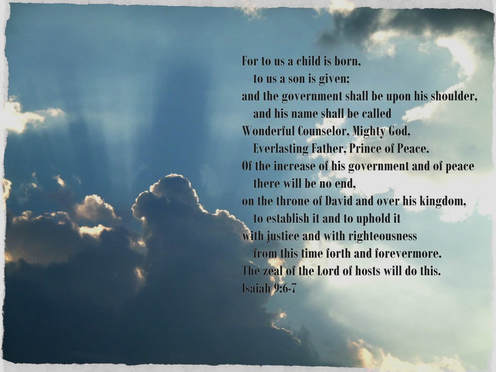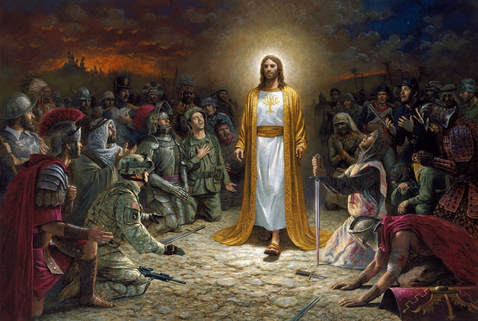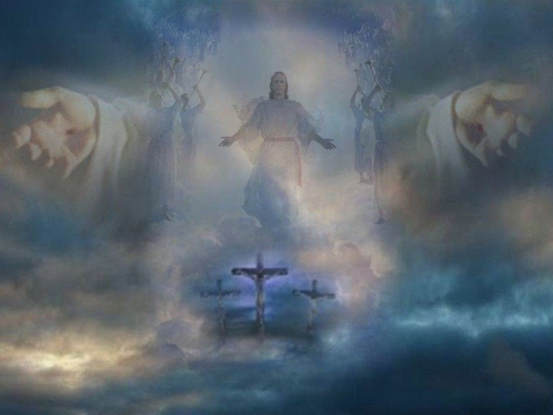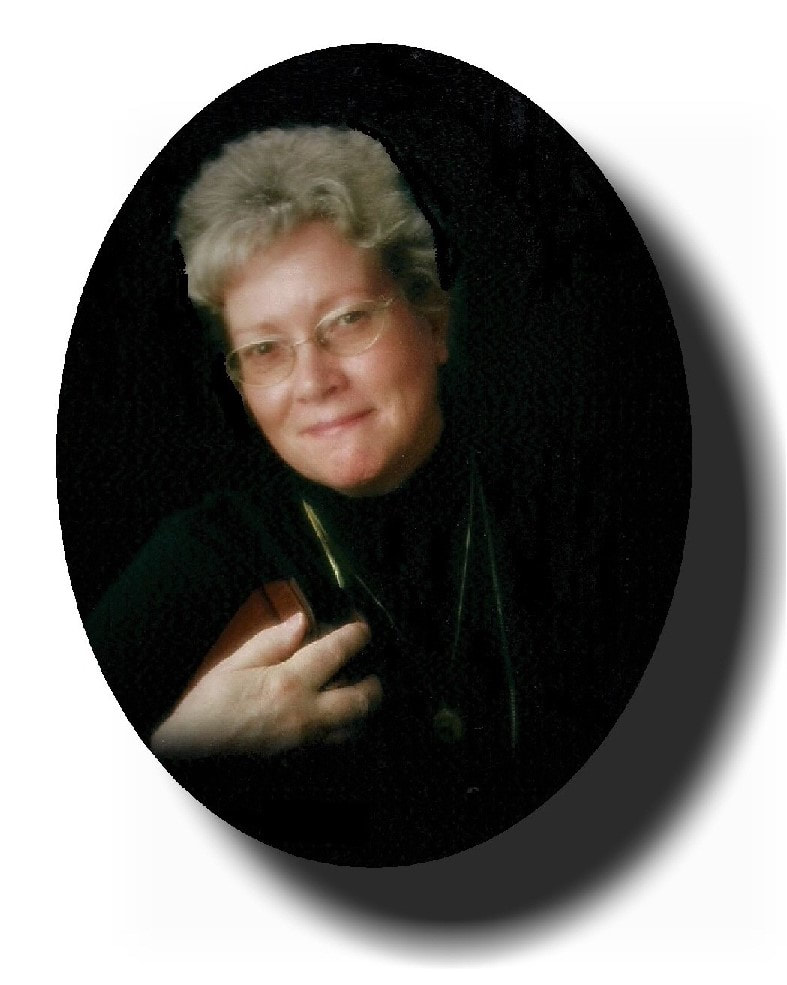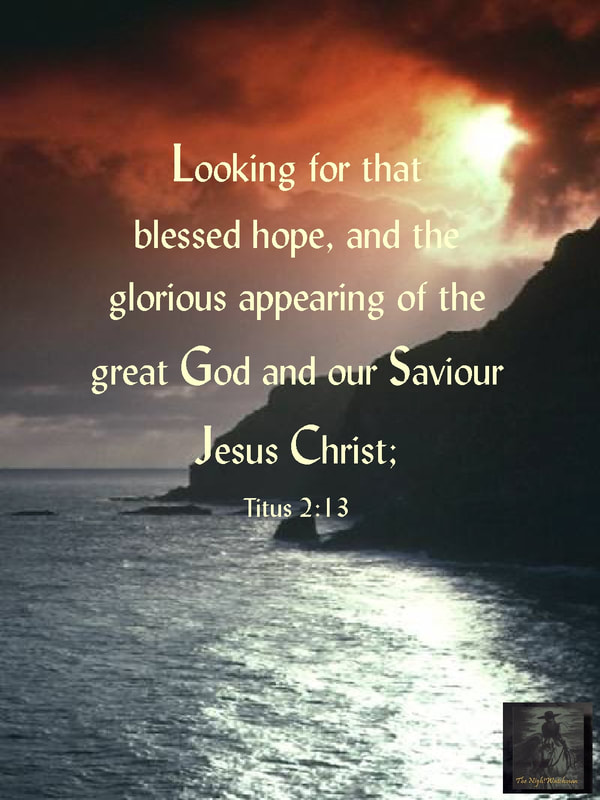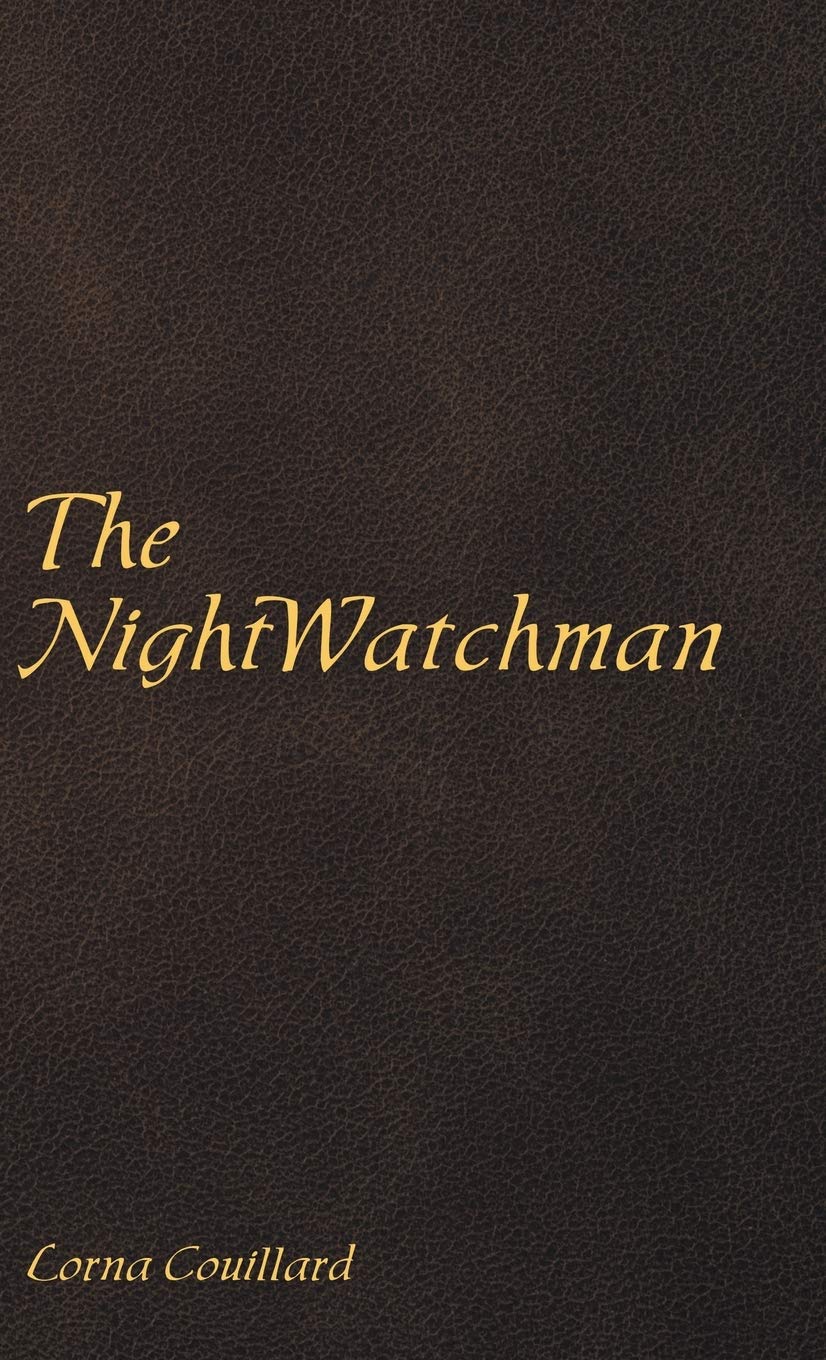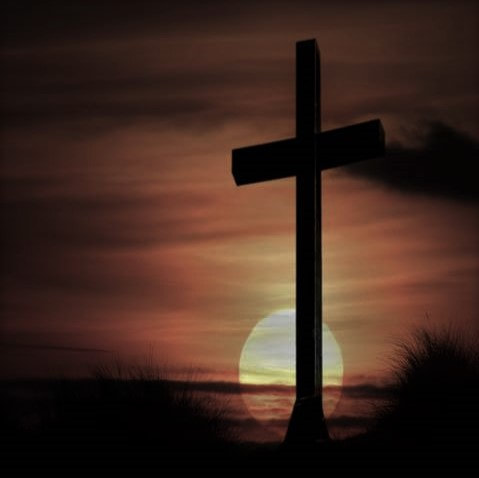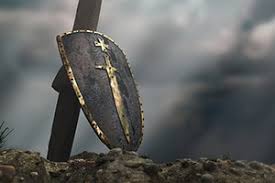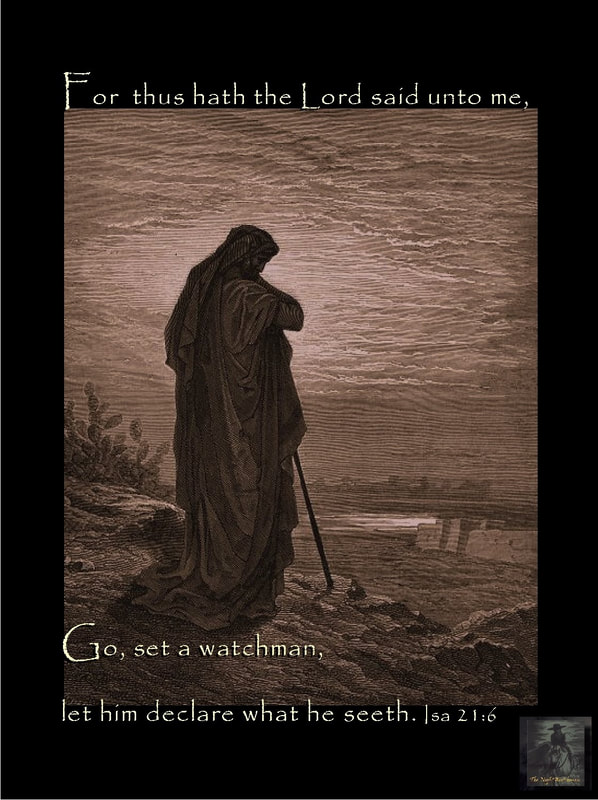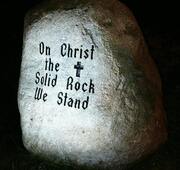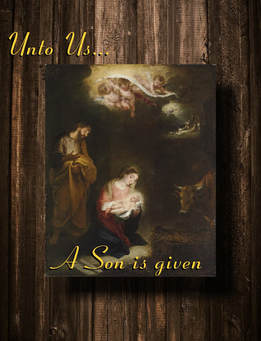 The Gift of a Son For unto us a child is born, unto us a son is given; and the government shall be upon his shoulder: and his name shall be called Wonderful, Counsellor, Mighty God, Everlasting Father, Prince of Peace.—Isa_9:6. This prophecy was delivered by Isaiah in the reign of Ahaz, either publicly, in the presence of the king, or else (as is more probable) privately, to his own immediate followers, henceforth to be spoken of as the believing Remnant. How much of the actual future it was given Isaiah to see, no one can say. It may be that he expected to see the beginning of such a reign within the limits of his own lifetime, just as St. Paul perhaps expected to be alive (1Th_4:15) at the Second Coming of our Lord. As a matter of fact, however, no child who could truly be described as in Isa_9:6 was born until the birth of Jesus Christ. The day of Christ, in fact though not in all its circumstances, was shown to Isaiah in vision. The subject is the Gift of a Son, and the obvious parts of it are (1) His Birth, (2) His Destination, and (3) His Name. I His Birth “Unto us a child is born, unto us a son is given.” 1. A Child.—Why was the Redeemer born? Why did He come as a child? Why was not an angel sent to redeem men? Why did not God appear in the fulness of His glory? Because (1) redemption must come from within. If a movement is to catch on, as the modern phrase is, it must be a movement from within the society. It was Luther the monk who became the reformer of Roman Catholicism. (2) The Redeemer must be one of us in order to show what we may be. He is tempted in all points like as we are, yet without sin, that He may Himself become a faithful and merciful High Priest, with a true feeling for our infirmities, and that He may also be to us a true example. (3) He must be one towards whom we can have the feeling of family affection. The mother’s love for her child must not be a hindrance to her love for her Saviour; they must be two streams flowing into one another, making one fuller and richer stream of love. They all were looking for a king To slay their foes, and lift them high. Thou cam’st a little baby thing, That made a woman cry. The possession of a child of one’s own opens up the possibility of an entirely new world of experience, and therefore of an entirely fresh revelation of the First Author and Supreme Object of all experience. I think I have told you before what my first thought was when I caught sight of a little living, moving, grumbling thing, mouthing its fingers and rubbing its fists in its eyes, on the floor before the fire. It was as if the Father in heaven had fairly (if it is not irreverent to say so) shaken hands, offered me His hand, and said, “Thou art forgiven.”1 [Note: R. W. Barbour, Thoughts.] 2. This is the meaning of the phrase “unto us.” As Isaiah used it, the phrase had a restricted meaning. Even when the fulfilment came, and the angels announced to the shepherds, “Unto you is born this day in the city of David a Saviour, which is Christ the Lord,” it was still a Saviour for the people of Israel that was promised. But when the Saviour appeared men saw immediately that He could not be confined to Israel. Even the Samaritans recognised Him as the Saviour of the world. Still, just as Isaiah’s prophecy was made to the faithful Remnant in Israel, so the fulfilment is only to those who receive Him. “He came unto his own, and his own received him not. But as many as received him, to them gave he power to become the sons of God.” On the centenary of the birth of George Stephenson there was an imposing demonstration at Newcastle. A vast procession filed through the town, carrying banners in honour of the great engineer. In the procession there was a band of men who carried a little banner bearing the words, “He was one of us.” They came from the little village of Wylam, where Stephenson was born, and were proud of him as having been one of themselves. 3. This child is a gift. In this lies the glory of the gospel. It is this that makes it a gospel. Not of works: “The wages of sin is death, but the gift of God is eternal life.” And what does this gift of God carry with it? (1) A remedy for distress: “Come unto me, all ye that labour and are heavy laden”; (2) An example of new life: “Be ye followers of me, even as I also am of Christ”; (3) Power to make the example effective: “I can do all things in Christ who strengtheneth me.” “Not only is He the Wisdom of God, in which the world was made—not only the Revelation of God, who lighteth every man—but also the Power of God, to arrest the flood of evil, to push back the merciless curse, to force open the bolted gates; the Power by which the strong Will of God enters into action upon the field of human history, and works mightily, thrusting its victorious way against all the weight of hostile principalities and unkindly powers. With power He comes from heaven that you who receive Him may have power to become, in His adoption, sons of God.”1 [Note: H. S. Holland, Christ or Ecclesiastes, p. 28.] II His Destination “The government shall be upon his shoulder.” He is to bear the burden of kingship. Accordingly, when the wise men came from the East, they came inquiring, “Where is he that is born King of the Jews?” 1. Now these two, a child and a king, express the supreme desire of the ancient Israelites. The history of Abraham is the memorable example of the one, the history of Samuel of the other. The paradox of Jewish faith consisted in this, that it focused at once in a cradle and a throne. To meet Jewish aspiration, the Saviour had to be “born King.” 2. Kingship is a burden. The government is to be laid upon His shoulder. The only crown that the Messiah visibly wore on earth was a crown of thorns. 3. But this king is competent. Not as Cromwell’s son Richard who laid down the government which he was not fit to carry. Can we trust Christ? Every question of this questioning age is running up into that. If He is God, the everlasting Son of the Father; if He has overcome the sharpness of death; if all power is given to Him in heaven and on earth, then we stand safe. We have not been mocked with cunningly devised fables. If it is not so, His claims and our hopes fall in a common and irretrievable ruin. (1) On Him depends our deliverance from the past. Christ alone frees us from the past. We may seek to bury it; we may say-- All that we two only know, I forgive and I forego; So thy face no more I meet In the field or in the street. It pursues us nevertheless; and the longer the world lasts the consequences of sin are more clearly traced, insomuch that Christian preachers of the doctrine of forgiveness often timidly minimise it, and fail to show it as a really supernatural thing. (2) On Him hangs all our hope for the future. A great change has come over thought on the subject of the immortality of the soul. There were many, almost within memory, who held fast to that, though they rejected the distinctive doctrines of Christianity. In the life of Reid, the great Scottish philosopher, there is a letter which puts this with striking force. All that is fast disappearing. Now we believe in immortality because we believe in Christ. In a little Perthshire town there was a minister of the Gospel whose name filled the district round like ointment poured forth. A Highland drover had occasionally to pass through this town. On one occasion he tarried over the Sabbath day and went to the church. He could not make much of a continuous English discourse. But at the end he heard the minister give out for singing a part of the 34th Psalm in the Scotch Version, of which the last verse is-- Ill shall the wicked slay; laid waste Shall be who hate the just. The Lord redeems His servants’ souls; None perish that Him trust. He understood the last line, and he waited for the minister in the vestry. “Sir,” he said, “you read from the Psalm Book, ‘None perish that Him trust.’ Is that true?” The man’s heart was opened. Often afterwards as he pursued his business and passed through the little town he went to see the minister. Locking hand in hand, the one or the other broke the silence by just saying, “None perish that Him trust.” When I was in my native place, I went to see an old pupil who was on his death-bed, and I told him the story. A few days after my visit he died; and his parents told me that many a time, when he thought no one was noticing, he was heard during these days softly murmuring to himself, “None perish that Him trust.” He went into eternity leaning on that confidence.1 [Note: Dr. Edmond, in Christian World Pulpit, ix. p. 145.] III
His Name His name describes His character and work. It may be taken in four pairs of epithets. 1. Wonderful, Counsellor.—This means, says Skinner, either that He is a wonder of a counsellor, or else that He counsels wonderful things, according to the grammatical construction adopted. The meaning is the same as we find again in Isa_28:29, “This also cometh forth from the Lord of hosts, which is wonderful in counsel, and excellent in working.” Now a counsellor does not counsel at random; he works according to a plan. This Child came with a definite plan—to seek and to save the lost. It was an offence then. It is an offence to the Pharisees still. But it has been wonderful in its working. To prove successful, however, it has to be tried. The Gospel of the grace of God has never failed with those who have put it to the proof; but it must be put to the proof. A gentleman once visited a great jewelry store, owned by a friend. His friend showed him magnificent diamonds, and other splendid stones. Amongst these stones his eye lighted on one that seemed quite lustreless, and pointing to it, he said, “That has no beauty at all.” But his friend put it in the hollow of his hand, and shut his hand, and then in a few moments opened it again. What a surprise! The entire stone gleamed with all the splendours of the rainbow. “What have you done to it?” asked the astonished gazer. His friend answered, “This is an opal. It is what we call the sympathetic jewel. It only needs to be gripped with the human hand to bring out its wonderful beauty.”1 [Note: A. C. Price.] 2. Mighty God.—“Unto us a child is born—Mighty God”; what a leap. How did Isaiah make it? Ask rather, How did Thomas make it? Is not this the carpenter? Is not this Jesus of Nazareth, and can any good thing come out of Nazareth? Yet Thomas, who knew all that, answered and said, “My Lord and my God.” How did he know? How do we know still? We know from what He said, from what He did, from what He was, from what He is. If Jesus Christ is a man-- And only a man—I say That of all mankind I cleave to him, And to him will cleave alway. If Jesus Christ is a God-- And the only God—I swear I will follow him through heaven and hell, The earth, the sea, the air. Everlasting Father.—If “Mighty God” was amazing, this is more amazing still. It may have been easier for Isaiah than it is for us. For do we not keep Father and Son distinct? But if they are distinct, they are yet one—I and the Father are one—they are one throughout all eternity. And to us the Son of the Father has all the attributes of Fatherhood. Like as a father pitieth his children, so the Lord Jesus has compassion on the multitude. Isaiah’s thought is very likely that He is to be more than king, that He is to be a father to His people, as the Russians call their Tsar “little father.” He is to gather the lambs in His arm and carry them in His bosom, and gently lead those that are with young. 4. Prince of Peace.—“Think not,” said Christ, “that I came to send peace on the earth; I came not to send peace, but a sword.” And so it has been suggested that the idea of Christ as a Prince of Peace is due not to the Gospels, but to this passage and to Milton-- But peaceful was the night Wherein the Prince of Light His reign of peace upon the earth began. But there is no contradiction between Isaiah and St. Matthew. The first evidence of the gift of the Child is the sword. It is evident enough even in His lifetime. And it will be evident as long as good and evil exist together in the world. An older prophecy even than Isaiah’s said, “I will put enmity between thee and the woman.” Christ came to make that enmity real, and to make it last until the evil should be overcome by the good. He came as Prince of Peace to the Remnant, to His own; not to those who cry “Peace, peace,” when there is no peace, but to those only who find peace through the blood of His Cross. In three ways He makes peace:—(1) By making God and man one in His Person—by becoming flesh and dwelling among us; (2) by making man and God one in His death; and (3) by reconciling man to man in His life. “Walk in newness of life,” says the Apostle; and among the signs of it: “As far as in you lies live peaceably with all men.” Peace, then, means something. It means something more than fine sentiment or sonorous generalities. It means the readiness to abide by the decisions of reason and common sense, instead of brute force. It means a disposition to avoid unnecessary causes of hostility. It means mutual courtesy. It means firm insistence upon one’s own rights, but the recognition at the same time of others’ rights, and straightforward readiness to respect them. Ten times more effective in the cause of peace than all the courts of arbitration which we can ever call together would be the spectacle of a great nation refusing, in its consciousness of strength, to be irritated by petty grievances, turning a deaf ear to the howlings of popular prejudice, and asking at the hand of sister nations, not sharp advantages, but only justice and right. Without this disposition, arbitration is neutralised and made ridiculous and unoperative at the start. With it, it becomes the virtual rooting out of war. (Great Texts comm) (NaturalNews) Have you ever wondered what's really in vaccines? According to the U.S. Centers for Disease Control's vaccine additives page, all the following ingredients are routinely used as vaccine additives: • Aluminum - A light metal that causes dementia and Alzheimer's disease. You should never inject yourself with aluminum. • Antibiotics - Chemicals that promote superbugs, which are deadly antibiotic-resistant strains of bacteria that are killing tens of thousands of Americans every year. • Formaldehyde - A "pickling" chemical used to preserve cadavers. It's highly toxic to the nervous system, causing blindness, brain damage and seizures. The U.S. Department of Health and Human Services openly admits that formaldehyde causes cancer. You can see this yourself on the National Toxicology Program website, featuring its 12th Report on Carcinogens. • Monosodium Glutamate (MSG) - A neurotoxic chemical called an "excitotoxin." It causes brain neurons to be overexcited to the point of death. MSG is toxic even when consumed in foods, where it causes migraine headaches and endocrine system damage. You should NEVER inject MSG into your body. But that's what health workers do when they inject you with vaccines. • Thimerosal - A methyl mercury compound that causes severe, permanent nervous system damage. Mercury is highly toxic to the brain. You should never touch, swallow or inject mercury at any dose. There is no safe dose of mercury! Doctors and vaccine pushers LIE to you and say there is no mercury in vaccines. Even the CDC readily admits vaccine still contain mercury (thimerosal). In addition, National Toxicology Programs admits in its own documents that: • Vaccinations "...may produce small but measurable increases in blood levels of mercury." • "Thimerosal was found to cross the blood-brain and placenta barriers." • The "...hazards of thimerosal include neurotoxicity and nephrotoxicity." (This means brain and kidney toxicity.) • "...similar toxicological profiles between ethylmercury and methylmercury raise the possibility that neurotoxicity may also occur at low doses of thimerosal." "... there are no existing guidelines for safe exposure to ethylmercury, the metabolite of thimerosal." • "...the assessment determined that the use of thimerosal as a preservative in vaccines might result in the intake of mercury during the first six months of life that exceeded recommended guidelines from the Environmental Protection Agency (EPA)..." • ..."In the U.S., thimerosal is still present as preservative in some vaccines given to young children, as well as certain biological products recommended during pregnancy. Thimerosal remains a preservative in some vaccines administered to adolescents and adults. In addition, thimerosal continues to be used internationally as a vaccine preservative." The report then goes on to say that the FDA studies thimerosal and somehow found it to be perfectly safe. It also states that vaccine manufactures are "working" to remove thimerosal from vaccines, but in reality it's still being manufactured right into the vaccines. By the way, this report also reveals that the FDA requires preservatives like thimerosal only in so-called "multi-dose" vaccines -- vials that contain more than one dose of the vaccine. Drug companies could, if they wanted to, produce "clean" single-dose vaccines without any mercury / thimerosal. But they choose not to because it's more profitable to product mercury-containing multi-dose vaccines. As the report admits, "Preservatives are not required for products formulated in singledose vials. Multidose vials are preferred by some physicians and health clinics because they are often less expensive per vaccine dose and require less storage space." So the reason why your child is being injected with vaccine boils down to health care offices making more money and saving shelf space! "Mercury in vaccines is a conspiracy theory! I've been told by numerous "skeptics" and doctors that there's no such thing as mercury in vaccines, and that any such suggestion is nothing more than a "wild conspiracy theory." That just goes to show you how ignorant all the skeptics, doctors and health professionals really are: They have NO CLUE what's in the vaccines they're dishing out to people! All they have to do is visit this CDC vaccine additives web page, which openly admits to these chemicals being used in vaccines right now. It's not a conspiracy theory, it turns out. It's the status quo of modern-day vaccine manufacturing! DANGERS OF FLU SHOTS Why I’m Not Getting a Flu Shot - https://philmaffetone.com/flu-shots/
Reporting flu vaccine science - https://www.bmj.com/content/360/bmj.k15/rr Flu Shot Side Effects danger - https://www.wolfsonintegrativecardiology.com/flu-shot-side-effects-danger/ Flu Shots May Not Protect the Elderly or the Very Young - https://www.scientificamerican.com/article/flu-shots-may-not-protect-the-elderly-or-the-very-young/ The Flu Shot Remains The Most Dangerous Vaccine Based on Injuries and Deaths Compensated by Government - https://www.mondialisation.ca/the-flu-shot-remains-the-most-dangerous-vaccine/5550163 Flu Shot Warning: The Controversial Flu Shot Pros and Cons You Need to Know - https://yurielkaim.com/the-flu-shot-pros-and-cons/ Thinking About Getting the Flu Shot?… Read This! - https://learntherisk.org/flu-shot/ |
Welcome
God's blessings You may find useful information here; Go to the resource page, you will find many videos and links The NightWatchman
No weapon that is formed against thee shall prosper; and every tongue that shall rise against thee in judgment thou shalt condemn. This is the heritage of the servants of the LORD, and their righteousness is of me,
saith the LORD. Isa 54:17 Rev 12:11
And they overcame him by the blood of the Lamb, and by the word of their testimony; and they loved not their lives unto the death. The Victory of Our Faith
For whatsoever
is born of God overcometh the world: and this is the victory that overcometh the world, even our faith. Who is he that overcometh the world, but he that believeth that Jesus is the Son of God? 1Jn 5:4-5 But they that wait
upon the LORD shall renew their strength; they shall mount up with wings as eagles; they shall run, and not be weary; and they shall walk, and not faint. Isa 40:31 Our Warfare
For though we walk in the flesh, we do not war after the flesh: (For the weapons of our warfare are not carnal, but mighty through God to the pulling down of strong holds;) Casting down imaginations, and every high thing that exalteth itself against the knowledge of God, and bringing into captivity every thought to the obedience of Christ; 2Cor 10:3-5 The Whole Armor
of God Finally, my brethren, be strong in the Lord, and in the power of his might. Put on the whole armour of God, that ye may be able to stand against the wiles of the devil. For we wrestle not against flesh and blood, but against principalities, against powers, against the rulers of the darkness of this world, against spiritual wickedness in high places. Wherefore take unto you the whole armour of God, that ye may be able to withstand in the evil day, and having done all, to stand. Stand therefore, having your loins girt about with truth, and having on the breastplate of righteousness; And your feet shod with the preparation of the gospel of peace; Above all, taking the shield of faith, wherewith ye shall be able to quench all the fiery darts of the wicked. And take the helmet of salvation, and the sword of the Spirit, which is the word of God: Praying always with all prayer and supplication in the Spirit, and watching thereunto with all perseverance and supplication for all saints; Eph 6:10-18 The Prayer Room
Archives
July 2024
|
Proudly powered by Weebly

